If you’re struggling to maintain a healthy weight or break through a weight-loss plateau and lose those last few kilos, it could be due to your evening habits. There are certain bedtime rituals that people do each night to wind down for bed that can lead to some sneaky weight gain. And while you may not notice the changes on the scale right away, those kilos add up. So if you think you’re gaining weight and aren't sure why, consider these common nighttime habits that might be messing with your healthy diet and hormones.





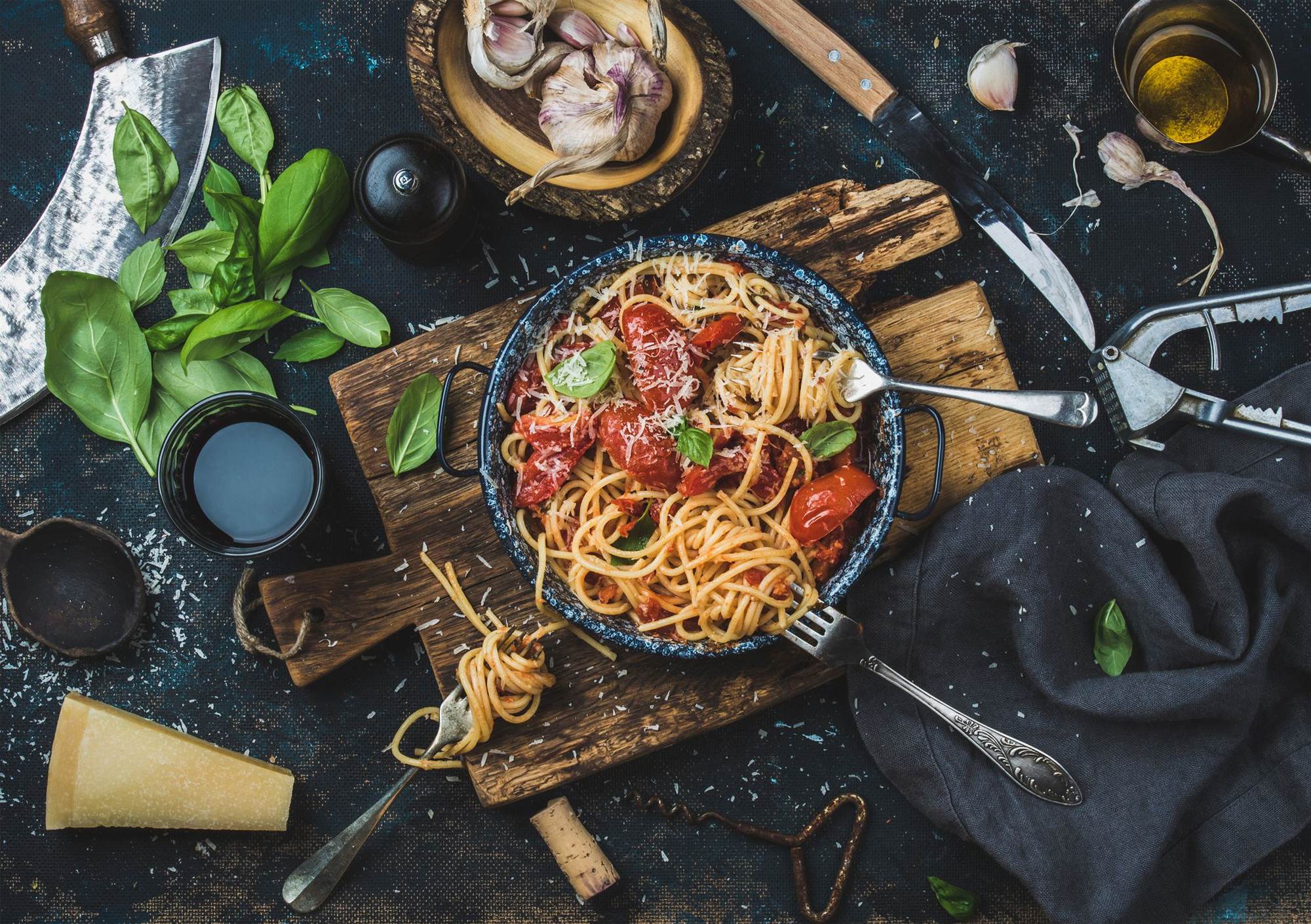
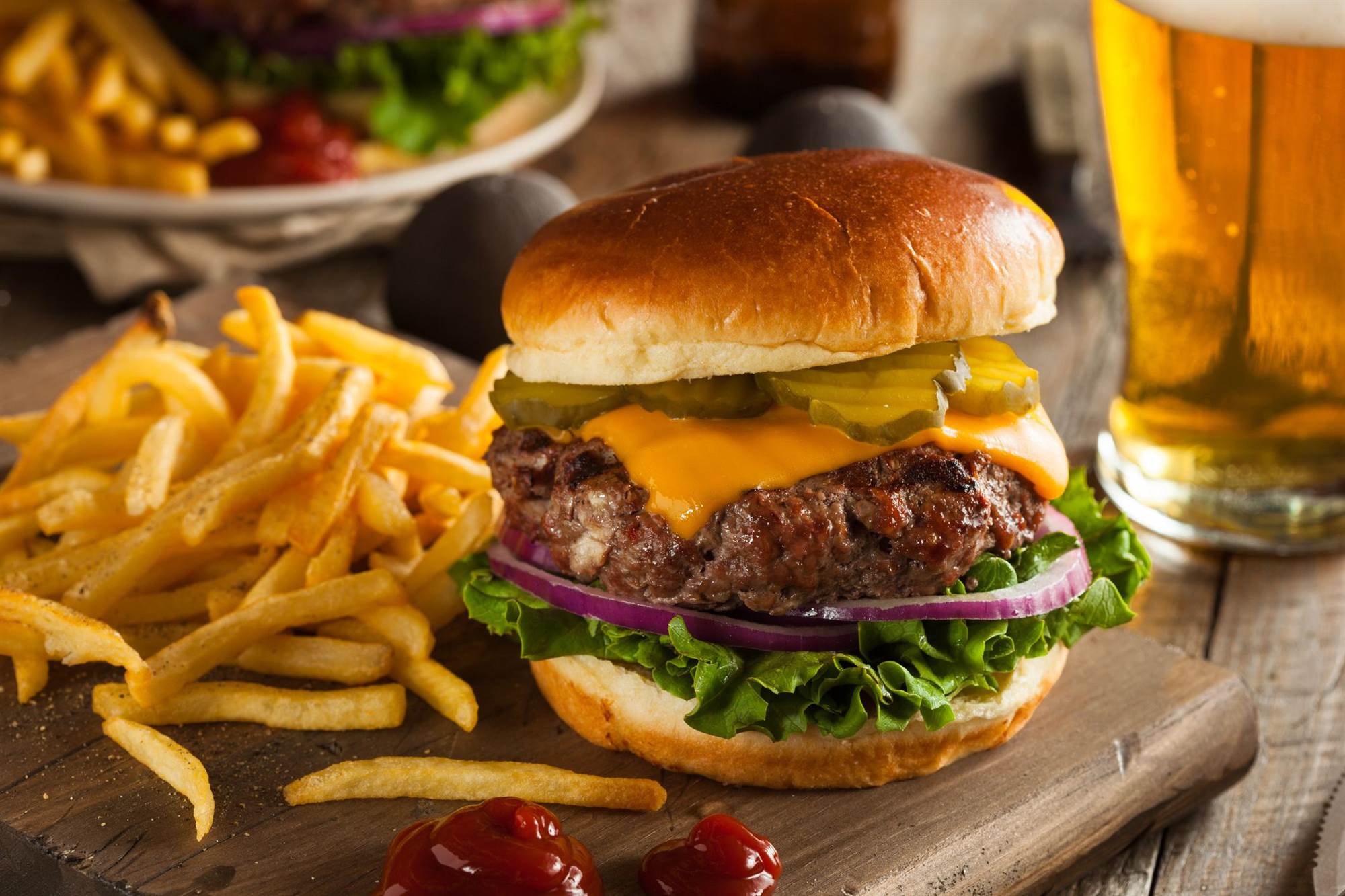

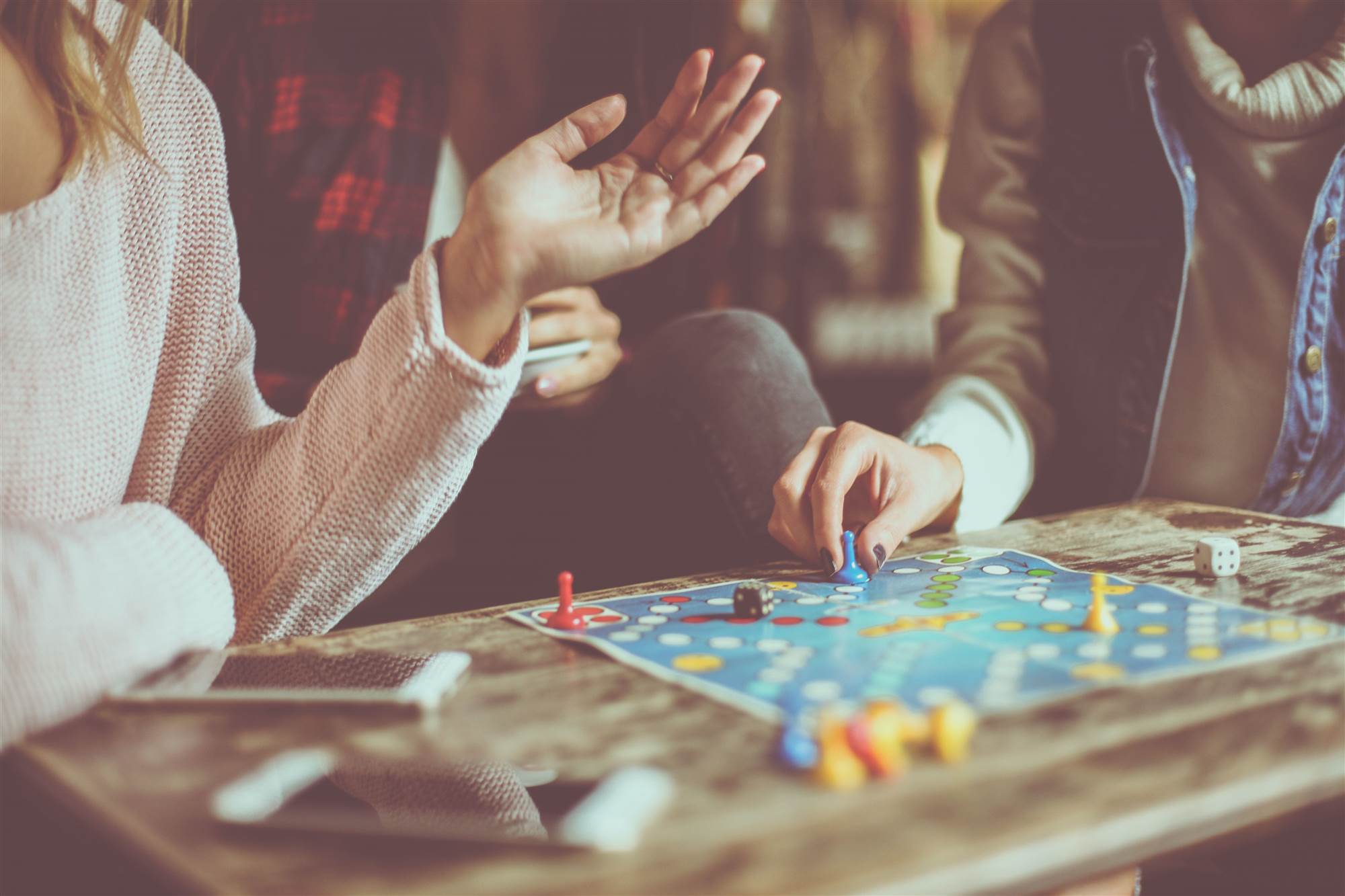
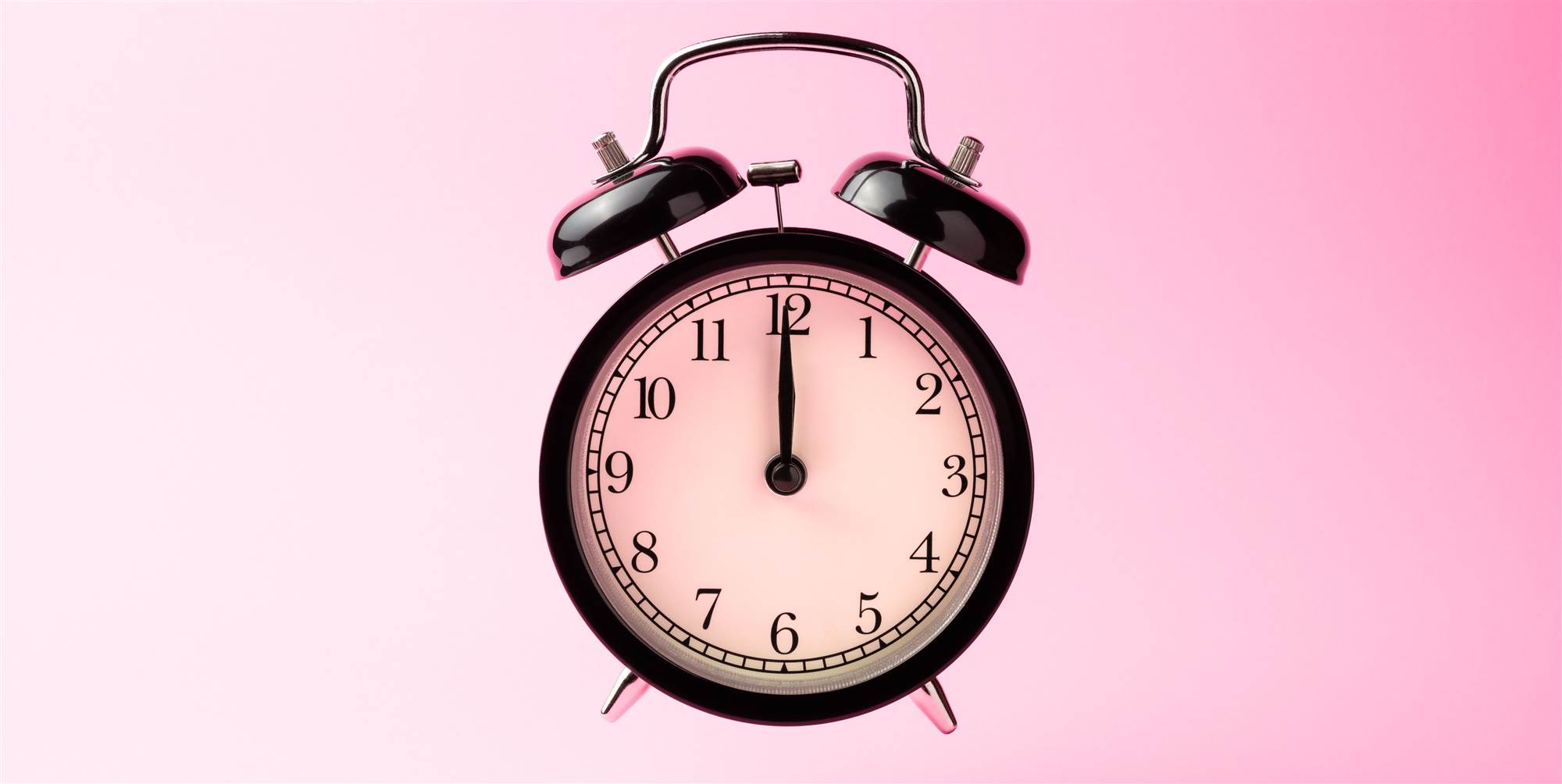





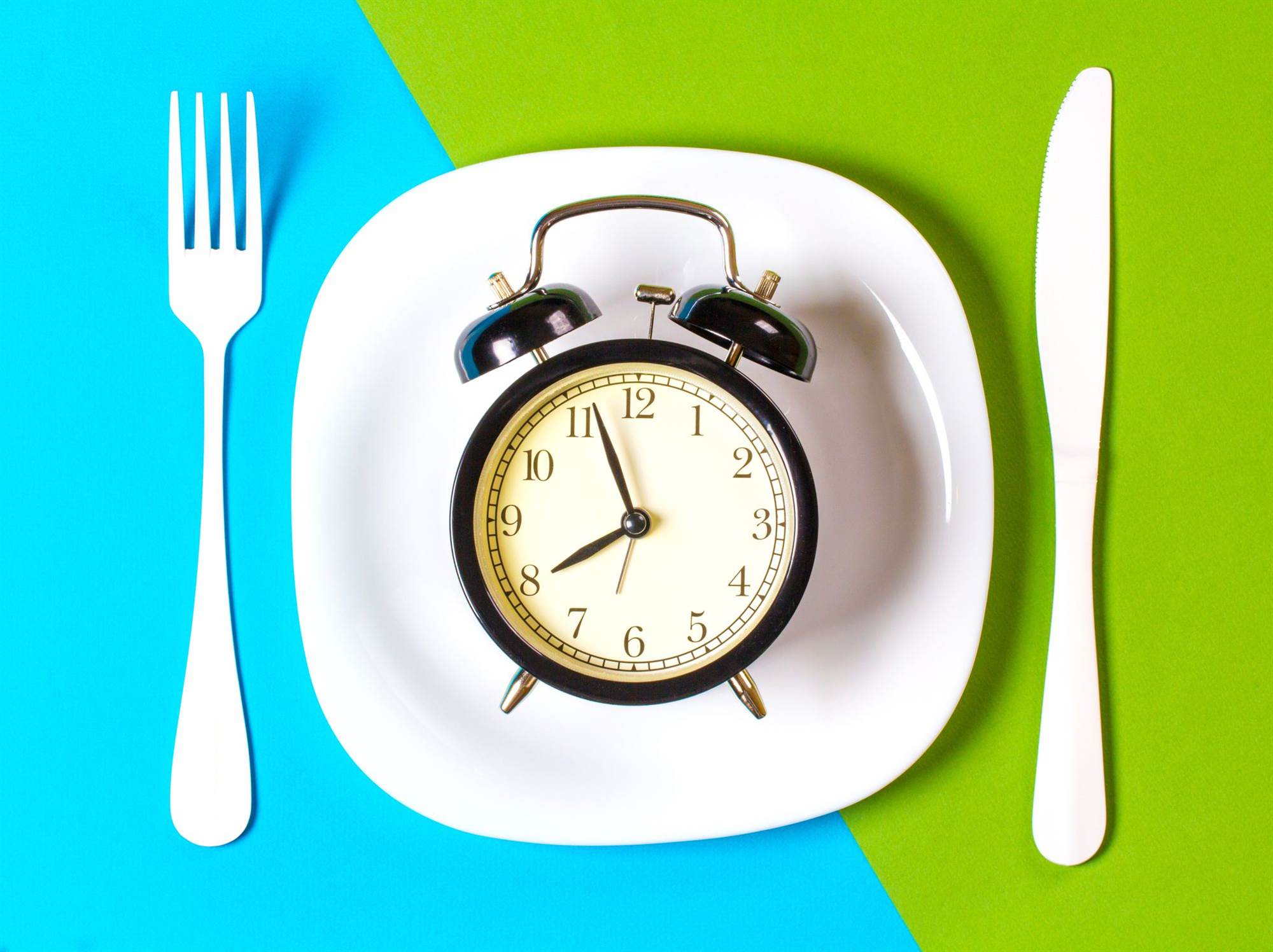


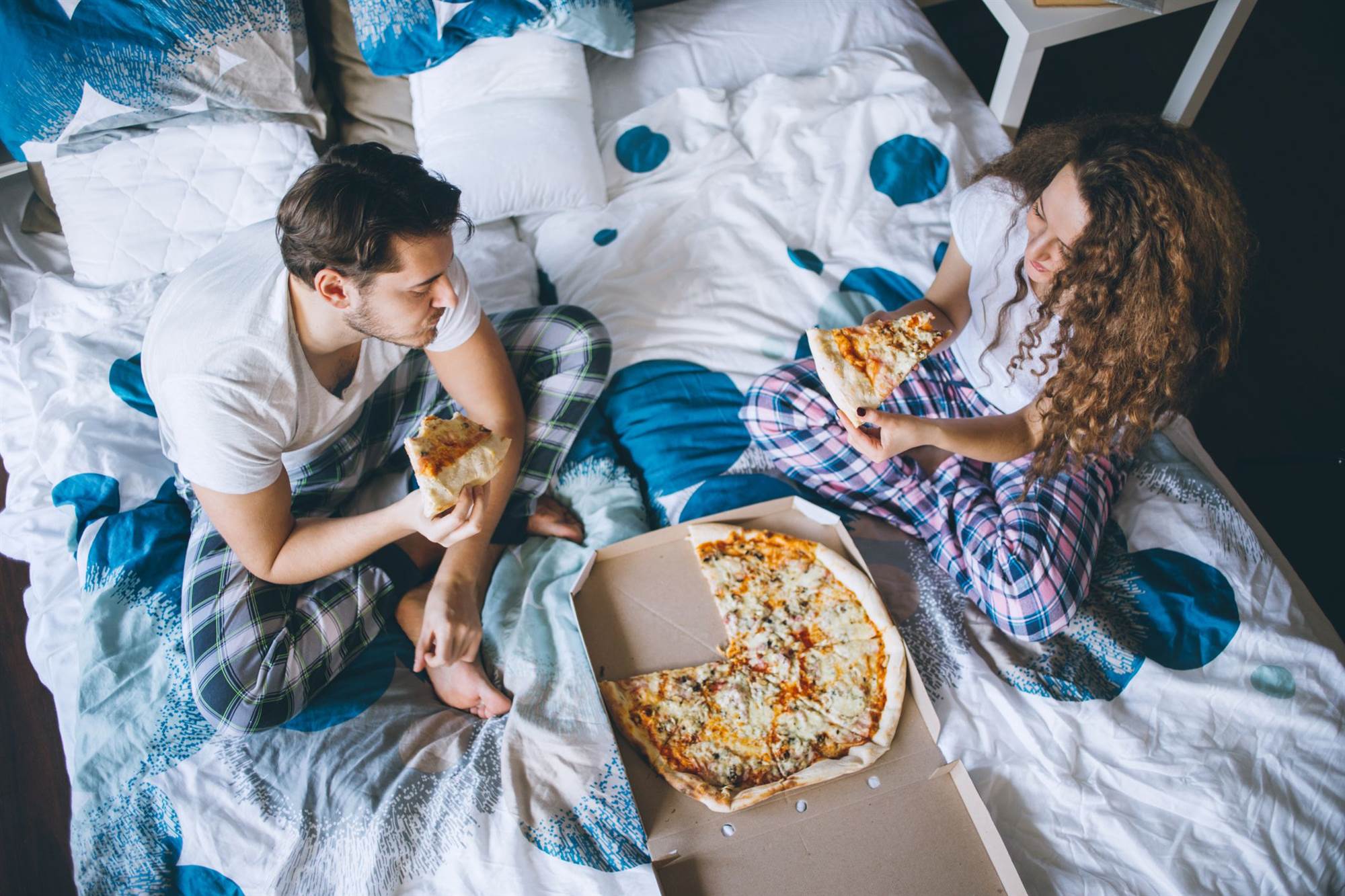

samritk ©Getty Images
You're eating too close to bedtime
Studies show that eating, whether it's having dinner or snacking, close to your bedtime can increase your kilojoule intake and lead to weight gain. A 2017 study suggests that eating during the rise of melatonin levels can lead to increased body fat.
“Your body is designed to function best during the daytime hours when you are most active. Therefore, you don't metabolise food as efficiently at night,” explains nuritionist Meghan Donnelly.
Instead, Donnelly recommends eating your last meal three to four hours before bedtime to prevent weight gain.
samritk ©Getty Images
You're stressed out or anxious
Stop responding to work emails at night. A 2018 study showed that stress, poor sleep and weight gain are all associated with each other. “Find ways to decompress in the evening, such as going for a walk with a friend, drinking a warm cup of tea or a taking a hot bath. Finding ways to manage stress may help you control your weight,” says dietitian Dana Angelo White.
samritk ©Getty Images
You're bored out of your mind
“Lots of folks confuse boredom for hunger, and this can lead to a late-night kilojoule overload. Keep yourself busy with a good book or play a game with the kiddos,” says White. You also want to avoid roaming through the kitchen and grabbing snacks you don’t really want, which will definitely contribute to added kilos.
samritk ©Getty Images
You're drinking caffeinated drinks before bed
Caffeine and sleep have a complicated relationship-it can perk you up in the morning, but a few sips too many at night, and it can interrupt restful sleep. “Those sleep disturbances can alter the hormones that manage appetite and the feeling of fullness. Cap the caffeinated beverages at six to eight hours before bedtime if you think it might be keeping you awake,” says White.
samritk ©Getty Images
You stay up late to watch TV
We know how addicting Netflix can be, but if you find yourself staying up late to get through another episode, it's time to re-evaluate your bedtime routine. Mindless screen time can also lead to lots of mindless munching.
“Aim to stick to a schedule - shut down the kitchen and screens at a specific time every night,” says White.
samritk ©Getty Images
You make dinner your largest meal of the day
If breakfast is typically your smallest meal of the day and dinner is your largest, you may want to think again. “One 2013 study has shown that the timing of when we eat meals can impact how our bodies process food, even if you're consuming the same amount of kilojoules throughout the day,” says dietitian Brooke Zigler. This particular study shows that those who eat a large breakfast lose more weight than those who consume a large dinner.
samritk ©Getty Images
You eat a high-sodium meal for dinner
If you consumed a salty meal before bed, the scale may go up the next morning.
“This is simply because your body may be retaining more water due to the extra salt, so the water weight is reflected on the scale (but it's only temporary!),” says Zigler. "However, if someone has too much sodium in their diet, they may at increased risk for obesity,” she adds. Aim to eat fewer processed foods and more whole foods that are lower in salt. And if you're eating a high-sodium dish, be sure to take sips of water in between bites to help wash down the salt.
samritk ©Getty Images
You eat in front of the TV
When it comes to mindful eating, it's not just what you eat, but how you eat, too. Eating in front of a TV can cause you to miss important satiety cues. “Simply putting down your phone during meals or turning off the TV allows you to be mentally present during a meal," Zigler says.
This will help you enjoy your meal and savour each bite. You'll also be more in tune with your body, so you don't overeat.
samritk ©Getty Images
You continue to sit after eating dinner
It may be tempting to plop on the couch and watch TV after dinner, but it could be beneficial to take an evening stroll instead. A 2011 study found that taking a walk after eating may actually lead to weight loss, says Zigler.
If going for a walk is not an option, stay active after dinner by washing dishes, doing laundry, or taking care of household chores before settling in for the evening.
samritk ©Getty Images
You're not going to bed early enough
Don’t skimp on those zzz’s. “Not getting enough shut-eye every night won't just leave you tired in the morning; it can also affect your weight. Poor sleep has been linked to having a higher BMI and obesity,” says Zigler. “People who sleep less tend to consume more kilojoules and may increase their chances of becoming insulin resistant,” she adds. Establishing healthy sleep habits is an important component of maintaining a healthy weight.
samritk ©Getty Images
You constantly snack after dinner
“No matter how healthy your dinner is, if you're following it up with lots of extra snacks, which are usually not carrot sticks, your kilojoule intake at night is quickly going up,” says dietitian Maggie Michalczyk. Try one of these healthy snacks instead or enjoy a bigger breakfast to prevent you from rummaging through your pantry and fridge in the evening.
samritk ©Getty Images
You drink alcohol as your night cap
Contrary to what you might think, enjoying a glass of wine or a cocktail before bed doesn't actually help you sleep better. “Not only does alcohol disrupt your sleep, triggering the hunger cycle that happens when you don't get enough sleep, but the kilojoules from the drinks add up, too,” says Michalczyk. “I'm not saying you can never go out and enjoy a night with friends, but if it's happening on weeknights just to relax, there are definitely better options,” she says.
samritk ©Getty Images
You exercise too late at night
It's important to get a sweat session in on most days of the week, but squeeze one in at least two to three hours before hitting the hay. The endorphin rush you feel post-workout can actually keep you up at night.
“Working out too late at night can lead to lack of sleep and throw off your energy cycle being the next day, resulting in less activity and more kilojoules consumed,” says Michalczyk. “I think it's important to have a calming nighttime routine that promotes sleep,” she says.
samritk ©Getty Images
You don't drink enough water in the evening
OK, you don’t want to chug gallons of H20 right before bed, but you also don’t want to be dehydrated. “Some people can confuse thirst with hunger. Staying hydrated in the evening can help give your body what it needs while signalling to your body that you're full,” says dietitian Ginger Hultin.
samritk ©Getty Images
Your medications can interfere with sleep
“There are some reports that the use of some sleep medicines actually cause something called ‘sleep eating’ as a side effect," says Hultin. This is a condition, in which people will wake up in the middle of the night and start eating, sometimes large amounts of food. If you suspect you have this condition, or if you find yourself relying on medications for sleep, talk to your doctor about changing the time you take your medication or finding another treatment plan.
samritk ©Getty Images
You skip eating dinner
If you're following an intermittent fasting plan, you might be skipping a nighttime meal altogether. But sometimes forgoing dinner can cause you to overeat the next morning.
“Some people, especially those with blood-sugar regulation problems, shouldn't go long periods without food. Hunger hormones surge after prolonged fasting, and some people will end up overcompensating by eating more the next day,” says Hultin.
samritk ©Getty Images
You're going to bed hungry
If you become hungry at night, go ahead and eat. “Denying your body food when it needs it can cause overeating at a later time. Plus, not eating can actually slow your metabolism down over time,” says Hultin. If the body thinks food is scarce, it's very good at conserving energy and fat for survival. Hunger is the cue that your blood sugar is getting low and that your body needs foods for nourishment.
samritk ©Getty Images
You're eating too much sugar and refined carbs
Stick with snacks made with lean protein and good fats before bed, along with complex carbs, rather than sweets and refined flour. “These foods could spike insulin levels and trigger fat storage, can also just contribute to an overload of unhealthy excess kilojoules (as most people have already eaten enough kilojoules by this point in the day), [which] can lead to weight gain,” says White.
samritk ©Getty Images
You order takeout every night
Start making more meals at home when possible and find healthy swaps for your favourite takeout dishes.
“The large portions of takeout meals are almost always too big so that's a lot of extra kilojoules you don't need, and since you don’t know exactly how the food was prepared, there's a good chance you're consuming way too much fat, and sodium,” says White.
samritk ©Getty Images
You answer emails or do work before bed
Don’t start going through your emails or finish up a presentation once you’re at home for the evening. “This can certainly make it hard to fall asleep, and lack of sleep can affect leptin [and] ghrelin, hormones, which control hunger,” explains White. Increasing ghrelin levels means you're more likely to experience cravings, even though you've had a meal and are full.










